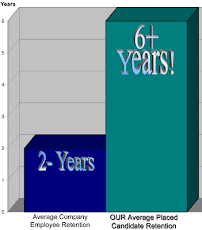
Design Engineering Salary and Career Insight
Responses to Design News' 2010 salary survey indicate stabilizing pay rates, rebounding industry demand and a level of job satisfaction that remains high enough for most to recommend the profession to others.
Article by David Greenfield, Editorial Director -- Design News, July 15, 2010 http://www.designnews.com/article/509765-Design_Engineering_Salary_and_Career_Insight.php
To say 2009 was a difficult year for most economically and in terms of employment would be considered a "sky is blue" statement. That is, it would be difficult to make a more obvious statement. Despite the bleak realities encountered across the board in the past couple of years, results from Design News' most recent survey of subscribers clearly indicates that the scene for design engineers is improving.
Granted, responses to the survey also indicated that plenty of work-related pain remains. The good news is that the bright spots were just as readily apparent.
Granted, responses to the survey also indicated that plenty of work-related pain remains. The good news is that the bright spots were just as readily apparent.
One particular bright spot is salaries. Forty percent of respondents received salary increases in the past year; while 51 percent saw their salaries remain static. Considering that salary reductions, furlouhs and other such cost-reduction tactics were making major news last year, the fact that such curtailments were encountered by less than 10 percent of our subscribing engineers is certainly a positive indicator, given the persistent economic circumstances.
Even with such a large number of respondents receiving salary increases, the static nature of design engineering salaries is reflected in an average salary of $89,597 - which is less than 1/10 of a percent lower than last year's average. On the bright side, bonuses are way up. Compared to last year's results, bonuses increased by 47 percent to an average of $9,025. This indicates two likely reasons: engineers are having increasing amounts of pay tied to performance and/or many companies had better-than-expected results at year end 2009, with bonuses increasing commensurately.
Salary Factors
In terms of what industries tended to pay the most for engineering talent, the highest paying industries were computer/peripherals, semiconductor and communication systems, in which salaries averaged out at about $103,000. The lowest paying industries were instrument/test equipment, machine tools and contract manufacturing, with an average salary of $74,000.
An interesting point to ponder about these industry-related salary figures is whether these salaries are more tied to the industries themselves, or where most of them tend to be located. Consider the evidence: The regions with the highest salaries were the Southwest and Mountain areas, which are well-known for high-tech computer, semiconductor and communication industries. Conversely, the Pacific Northwest and Midwest were the regions with the lowest salaries; both of these regions represent a large number of instrumentation, machine tool and contract manufacturing providers. The question this raises is a real "the chicken or the egg" type of conundrum. Are salaries lower in the Midwest because of the industries principally located there or because of general cost of  living issues? Likewise, are salaries higher in the West because of all the leading-edge industries there
vying for talent or the cost of living?
Satisfaction Points
Though salary is clearly a leading indicator - if not the leading indicator - of job satisfaction, if your work environment is miserable, your salary is likely to be of little consolation.
For the majority of design engineers, this issue is not a problem. Fifty-nine percent of respondents say the role of the engineer in their company is well respected and 63 percent say they personally feel appreciated at their jobs. However, 49 percent feel underpaid and overworked and only 44 percent feel they are fully using their engineering skills.
Of those who are most satisfied with their jobs, the principal reasons are that their work provides them a sense of accomplishment, and the freedom to design and make a contribution to the company's viability. Those who are somewhat or not satisfied most often cite offshoring/outsourcing as the primary reasons for their discontent, as well as company politics and bad management.
The proportion of respondents either completely worried or definitely not worried about the safety of their job was the same - 29 percent are not at all concerned about losing their job, and 29 percent are extremely or very concerned. Those most concerned about losing their jobs cited the economy, outsourcing and canceled orders/projects leading to downsizing/layoffs. Of those who are not concerned, most claimed to work for stable companies with good management and/or are in well-performing market sectors. These respondents also feel they have unique skill sets and are seeing older engineers retiring soon, thereby providing more opportunity for younger engineers.
Verbatim comments to the survey reflected the disparity of opinions over job satisfaction and security. One respondent said, "I was already laid off and found a new job. I am not highly concerned that this new job will go away because they are currently trying to hire more people." Another noted that "If you are a skilled and proven engineer, there are always jobs out there."
On the other hand, responses of this type were not uncommon: "All companies are downsizing. It is only a matter of time before it happens here unless economic conditions change soon."
Several respondents also noted the "short-term attitude of their company" adversely affecting their jobs and that the "attitude toward engineering as a profession has been shifting. Engineers used to be respected and had a voice. Now they are merely viewed as the grunt workers."
Despite the not-insignificant number of engineers unhappy with their current job situation, only 10 percent said they are actively seeking other employment. Of those engaged in a job search, most are relying on word of mouth/peer recommendations; 33 percent use job websites; and 28 percent are turning to social networking. The social media site most cited for job use was LinkedIn.
The most telling statistic for any product, service or job lies in how many of those currently involved with it would recommend it to a close friend or relative. When it comes to design engineering, 70 percent of respondents said they would recommend their field of work to a son, daughter or friend."














1 comment:
I finally decided to write a comment on your blog. I just wanted to say good job. I really enjoy reading your posts.pcb suppliers
Post a Comment